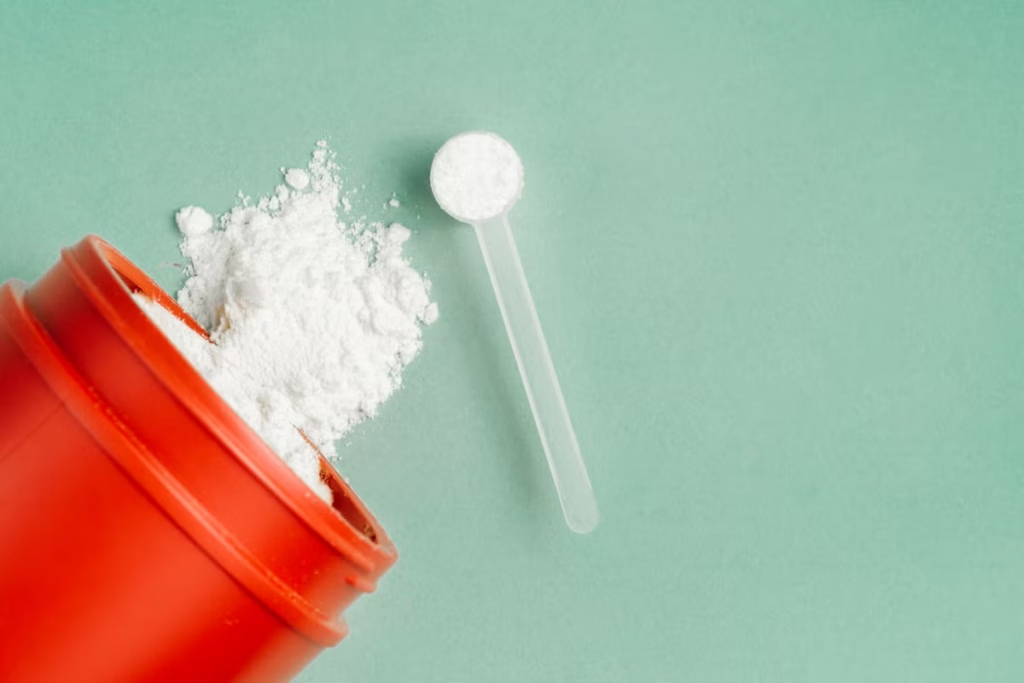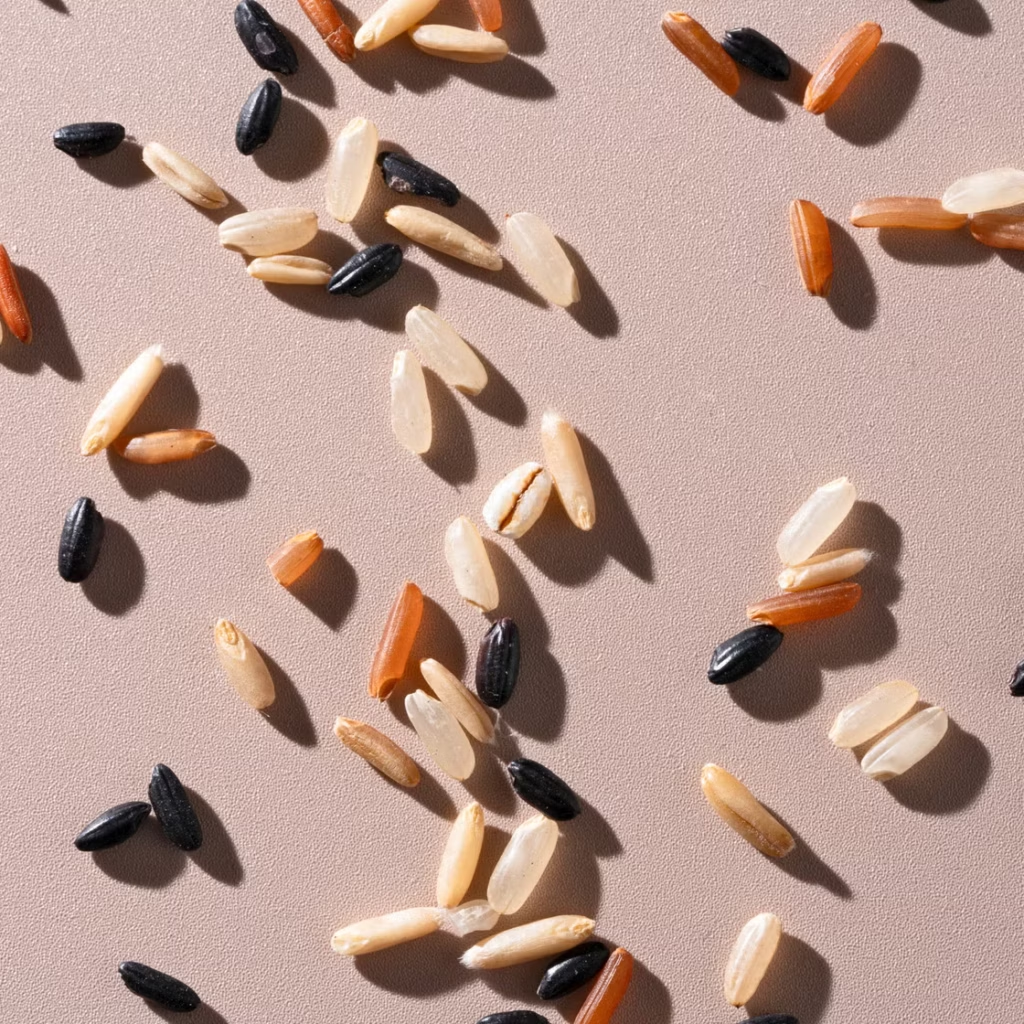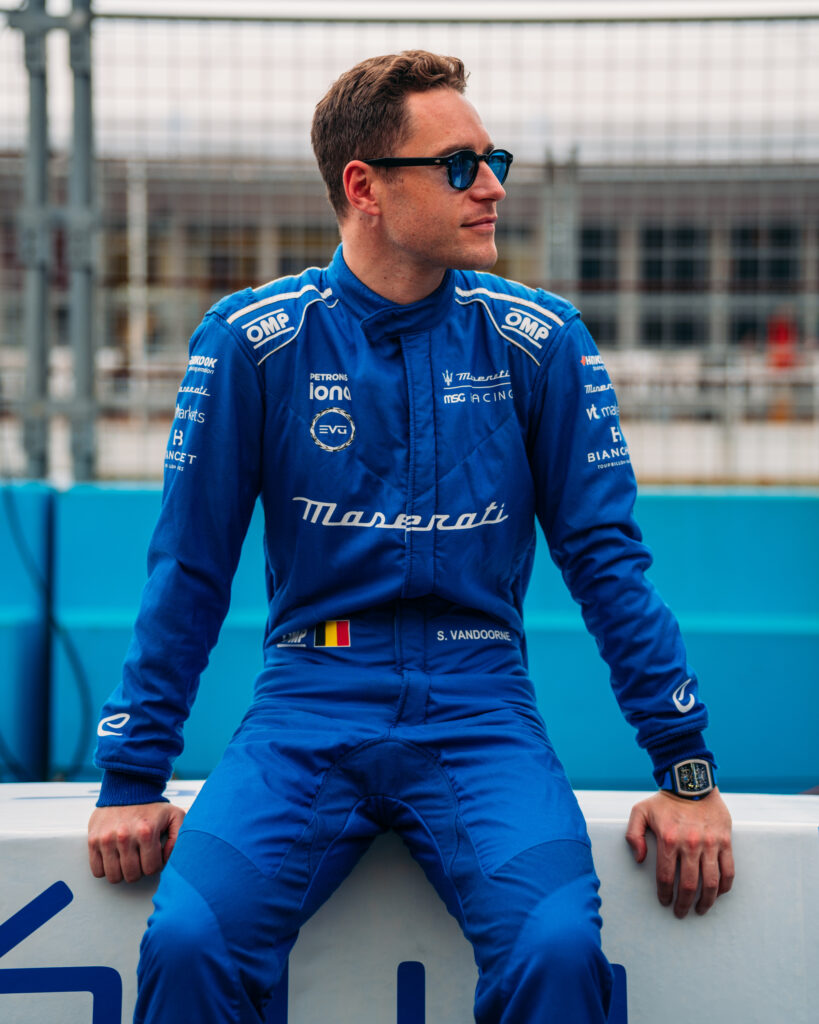Brought to you by![]()
As outfield players buzz around the pitch, Maty Ryan paces across his penalty box, saving shots, collecting crosses and sprinting off his line to greet would-be goal scorers. While he may not be accumulating as many steps as his team mates during a match, it is agility and reaction time where he shines.
Currently playing for Danish club F.C. Copenhagen, the Socceroos goalkeeper has his eyes set on competing in the World Cup finals for his country for a third time, this time in Qatar.
He may be one of the most legendary Aussie goalies in soccer, winning several individual awards to go with those World Cup appearances -but that doesn’t mean he takes his preparation for granted.
Here’s how the Socceroo is eating and training ahead of this year’s World Cup – and how you can follow his lead, with the help of Musashi Nutrition’s Performance Lab – a platform provided by the number one Sports Nutrition brand in Australia that offers free sport specific training and nutrition programs to everyday athletes.
Supplements
To support his training ahead of the World Cup, Ryan explains the importance of the correct supplementation with a sport specific nutrition plan to support his performance even further. He is opting for plant-based protein alongside beta alanine and creatine.
“Through speaking with the experts at Musashi, I’ve been able to educate myself on the science behind what supplements can be beneficial for my performance and recovery. Before this I didn’t really know about much beyond protein powder,” he explains. “After educating myself a bit, I now take Musashi’s beta alanine before training to help prolong my ability to train at maximum capacity. Then after training I’ll take creatine together with plant-based protein.”
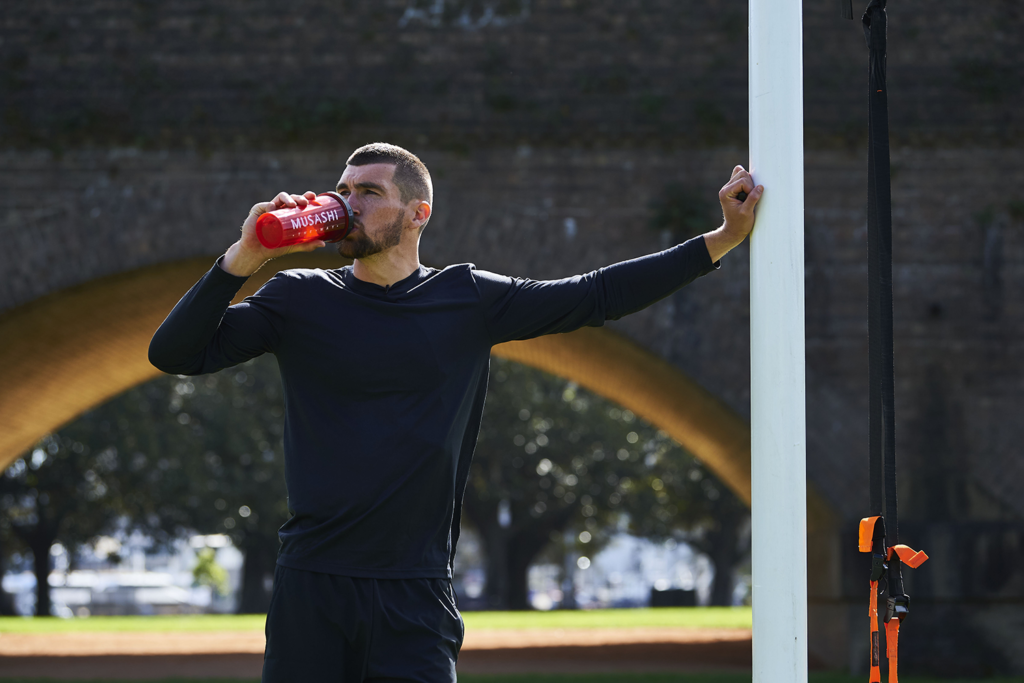
Ryan opts for Musashi’s creatine to help with energy recovery and delay the onset of fatigue, and Musashi’s plant protein powder to make sure his body has the fuel it needs to help repair the muscle fibres.
“As a professional athlete, I’m always looking at what I can do to create an edge for myself and I find taking supplements helps me maximise my full training potential, which in turn means that I can put the most into my performance on match days,” says Ryan.
So how does he take it?
“For the beta alanine, I mix it with water and take it 30min before a workout/training. The protein and creatine I’ll take straight after the session. Typically within an hour of finishing and usually pretty quickly. Alongside that, I’ll generally add in a massage, cold bath, shower, and then either lunch or dinner depending on the time of day.”
“As a goalkeeper, my performance in a given match can come down to a number of explosive movements and quick reactions, so going out on to the pitch and feeling healthy and sharp is vital to that. I’ve definitely found that first educating myself, and then introducing the products from Musashi into my training routine, has helped me get the best out of myself and has contributed to my performances and career.”
You can find a complete Off-Season, Pre-Season and During-Season nutrition plan and training program – just like Maty Ryan’s – at the Musashi Performance Lab.
Daily nutrition
Maty Ryan’s off-season schedule generally follows two phases. First up, the 30-year-old prioritises mental health, and recovery – allowing a few cheeky bites and not-so-strict restaurant orders.
“Using a 5-week break as an example, for the first 1-2 weeks I’ll take things really easy. Playing overseas means that seeing family and friends is a priority, and these catch-ups inevitably mean a lot of eating out at restaurants and cafes. I’ll pick something healthy from the menu but it’s not the same as my in-season discipline where I pay strict attention to what I eat. As far as training goes, I’ll play some golf or tennis to keep active, but it’s my one chance to give my body a break from the usual routine,” he explains to Men’s Health.
Once the player has rested and reloaded, it’s time to ramp up training again with a mix of strength and cardio. “After those first 1-2 weeks, I start to get back into gear. For training, I like to get a gym session in first thing in the morning so that I can still make the most of the day. I’ll start to reintroduce my body to the movements specific to my sport and position,” explains Ryan.
To support this, his nutrition is reigned in and focuses on supporting the amount of physical activity he is taking on. His diet is one that Ryan compares to fuelling a car: he only wants to use the premium stuff. What this means, is that he tends to stick to a lot of wholegrain foods (think quinoa, granola and brown rice), quality protein such as chicken (he doesn’t eat a lot of red meat), and plenty of fruit and veg. Three solid meals, and not much snacking in-between.
“Getting my diet more locked in goes alongside that. I make sure that I’m focusing in on eating plenty of vegetables and fresh produce, alongside protein sources like lean meats, and indulgences become a lot more occasional.”
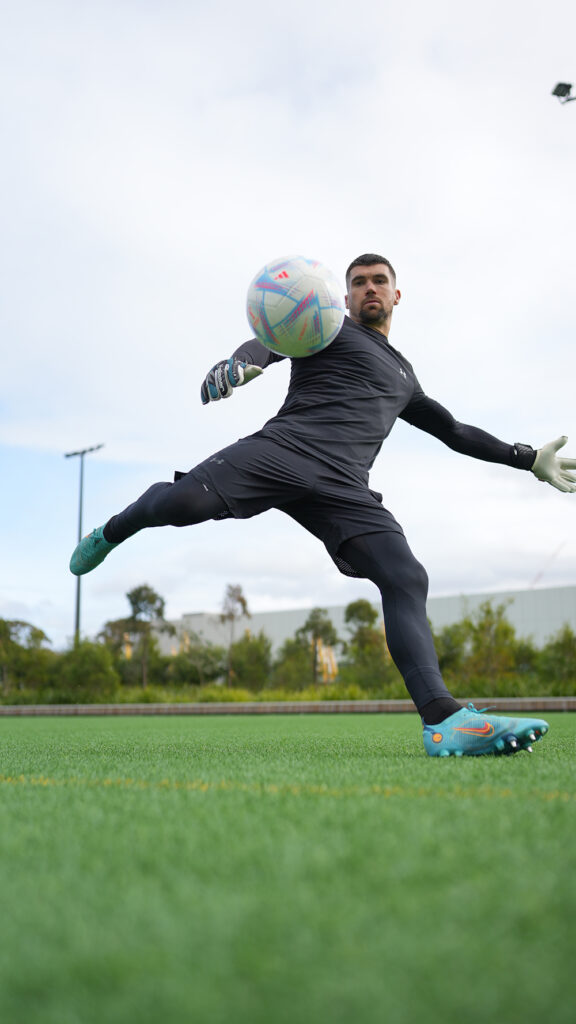
With the World Cup coming up, Ryan’s regular nutrition plan will look very similar, apart from bigger portions to support the additional calories he’s planning to burn. However, the unique timing of the World Cup puts additional stress onto the athlete’s schedule, which is where sports nutrition will come into play.
“…it won’t change too much as the main differences are more tactical. Going from my club team to the national team means working under different coaches and personnel. What’s going to be unique this year is that the World Cup is being held in November/December which is mid-season. Previously World Cups have been held during our off-season which has meant that we’ve had a bit of a break and then played some friendlies or had a camp before the tournament as preparation,” he explains. “The other factor is that our seasons have become much more condensed to fit in the World Cup and still finish on time, so a lot of us will be playing additional mid-week games.”
All in all, an even balance between training and sports nutrition has been crucial to Maty’s performance on the field.
To find out more, and get your own sports nutrition plan, head to musashi.com/performance-lab/








